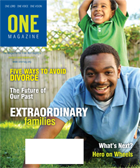
August-
September 2011
Extraordinary
Families
E-Reader
About ONE
----------------------
|
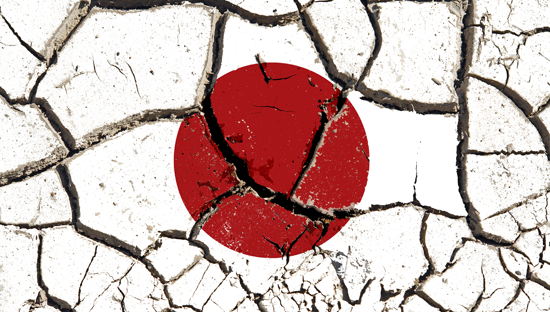
Nothing's been the same in Japan since March 11...
Though the Earth Be Moved
by Ruth McDonald
When Foundations Tremble
Nothing’s been the same in Japan since March 11. It truly was one of those “Where were you when…?” kind of events.
At 2:46 on Friday afternoon, March 11, I was upstairs in our house in Tokyo, sorting and pricing items for an upcoming bazaar at my children’s school. As I worked through a box of old Christmas decorations, I came across an ancient, ugly wreath. I considered throwing it away but then thought, “If I take off this pitiful bow, maybe someone will buy it.” As I began to untwist the ragged bow, the room began to shake.
Earthquakes are not unusual in Tokyo, and this one started like many others. I expected it to be over in a few seconds. As the house continued to shake with more intensity, I realized this was no ordinary quake. Grasping the handrail, I made my way downstairs as though I were on a lurching, pitching ship at sea. My husband and I met in the genkan, hurriedly put on our shoes, and went outside. Standing in front of the house, we watched as the cars danced and jumped in the driveway, utility poles swayed and bent, and the houses in our neighborhood rattled and tilted. The ground shifted beneath our feet, making it difficult to keep our balance. Fearing the collapse of buildings around us, we made our way to an open field nearby, joining neighbors who had also fled their homes.
At some point, I began praying aloud, “Lord, help us! Lord, protect our girls at school! Lord, protect the people who are at the epicenter of this earthquake!” After an extremely long three and a half minutes, the shaking finally stopped.
That’s when I discovered I was still grasping that tacky Christmas bow in my hand! I laughed at my neighbors’ curious expressions as they looked at what I had selected to bring from my home in the moment of evacuation.
We went back into the house and surveyed the damage—a broken lamp, mirror, and vase. Books scattered across the floor. Furniture slightly rearranged. “Whew! We got off easy!” we thought. We had no idea how true that was.
In the Aftermath
Apocalyptic movies are not my favorites, but I’ve seen a few scenes complete with terrifying computer graphics. The scenes broadcast in my living room on March 11, however, were completely real and too horrible for my mind to grasp. We watched a 90-foot wall of water hit the eastern coast of Japan. Five-story buildings were swept away; entire towns were decimated; people were literally running for their lives. We sat and watched in horror as some were washed out to sea.
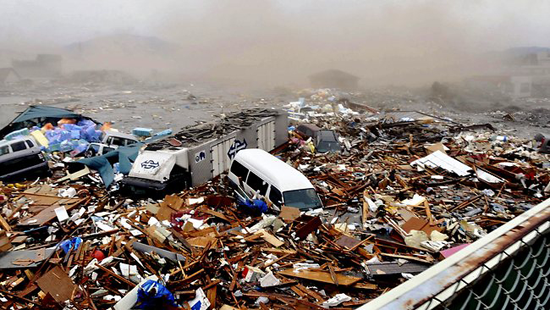
In a matter of minutes, life ended for around 28,000 people. Most of them were aware of the tsunami warning and fled to safety as planned. Unbelievably, more than a hundred designated evacuation sites were swallowed by the giant wave that drove ashore at the speed of Japan’s famous bullet train with enough force to mangle steel.
In a matter of moments, 200,000 people became homeless evacuees, living without even the most basic of life-sustaining supplies.
The 9.0 magnitude quake permanently changed the coastline, shifting the entire island eight feet to the east and sinking the coastal areas over three feet into the sea. Even the tilt of the earth on its axis has altered four inches as a result of the Great Tohuko-Kanto Earthquake. As incredible as those facts are, the change in the hearts of Japan’s people has been almost as dramatic.
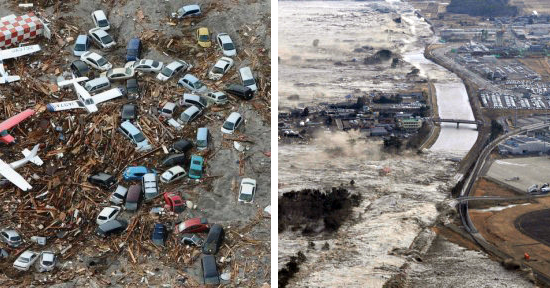
About 36 hours after the quake, we met with our little group of believers at the Good News Chapel here in Tokyo. Japanese do not usually show emotion, but on this day strong men wept as they called out to God for His intervention in the nuclear disaster. A lady grieved for her hometown of Minami Sanriku, where 10,000 residents were simply gone. Another couple led in prayer for their nephew who was among the brave workers risking life and health at the Fukushima Power Plant.
God Himself spoke as we read together from Psalm 46: “God is our refuge and strength, a very present help in trouble. Therefore will not we fear, though the earth be removed, and though the mountains be carried into the midst of the sea; though the waters thereof roar and be troubled, though the mountains shake with the swelling thereof.”
He whispered His peace as we continued: “Be still, and know that I am God: I will be exalted among the heathen, I will be exalted in the earth. The LORD of hosts is with us; the God of Jacob is our refuge.”
Hope Springs From Tragedy
A few hours after the quake, missionaries and Japanese Christians around the Tokyo area met for an organizational meeting to begin relief work for the hard-hit Tohoku area. Some six years earlier, a young missionary named Jonathan Wilson had begun laying groundwork for a Christian disaster response network. He applied for a government license, printed literature, and started a database. Like Noah building the ark when no rain was falling, he spent six years gathering contact information from Christians willing to help in the event of a major disaster.
Overnight, CRASH (Christian Relief, Assistance, Support, and Hope) changed from a mere database to a full-blown relief organization. The first 747 aircraft arrived carrying 97 tons of relief goods from Samaritan’s Purse, and suddenly missionaries and others were plunged into a different kind of ministry than they’d ever envisioned for Japan.
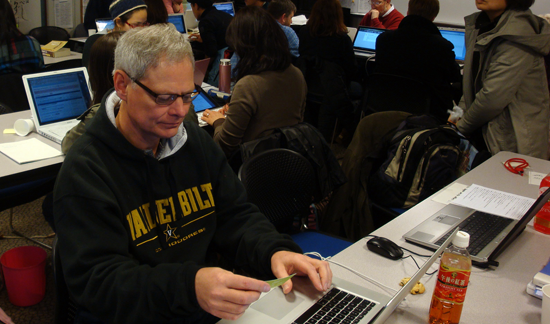
Photo: Missionary Donnie McDonald at work at CRASH headquarters.
For many evacuees, Christian volunteers were the first to arrive with water, food, and life-sustaining supplies. To date, four base camps have been set up to facilitate relief and recovery ministries to those most affected by the events of March 11. More than 50 relief organizations and hundreds of volunteers, including teams from Free Will Baptist International Missions, have been mobilized to bring hope and healing to the people of Japan.
The church in Japan has changed. Comprising only one-half of one percent of the population, Christians have long felt powerless to make a difference. Add to that the non-confrontational culture and the resistance of the public to the message, and you have a recipe for a weak and discouraged church. But God is changing and empowering His people.
A young believer from a church in the devastation zone stood in the debris and wept as he said, “The people who lived around our church were swept away by the tsunami and are gone. I never did anything for any of them. May God forgive me and enable me to spend the rest of my life loving people in His name.”
Seven members of the Baptist church in Fukushima work at the radiation-tainted Tokyo Electric Power Company. Though one of them fled the jobsite in fear, he returned with his Bible and a newfound determination to tell the other workers about the hope and healing found in Christ.
As a man in our Tokyo congregation said, “We shouldn’t be surprised at recent events in Japan. God told us in the Bible that these kinds of things would happen before the return of Christ. We just need to be busy getting the word out that His coming is getting near!”
We live 250 kilometers from the hardest hit area of Japan, yet daily life for our neighbors changed. Food shortages, blackouts, fear of radiation in the water, daily aftershocks, and financial loss became the “new normal” in our area. Uncertainty, anxiety, and a willingness to talk about real emotions became a sign of a post-March 11 nation.
An Open Door
After countless prayers for the harvest in Japan, it seems the hearts of the people are changing. People are receiving Bibles and Christian literature eagerly. According to one Japanese pastor in the Tohoku area, “Some are accepting Christ without question.” Volunteers are given opportunities to pray with survivors, to counsel with children, and even to do radio broadcasts on the emotional help that can be found through Christ. God, through His people, is reaching evacuation centers, government offices, and even a group taking refuge in a Buddhist temple.
As one missionary in Sendai said, “Now is the time to ask God for Japan. Let’s believe for this earthquake to be a sign of the Lord shaking the old structures that resist Him, and that like Paul and Silas, we will see a massive turning to Him. Pray also that now we will see a spiritual tsunami that will wash over Japan with the healing power and love of God.”
About the Writer: Ruth McDonald and her husband Donnie have been missionaries to one of the hard places since 1986. Read more about the McDonalds and the ongoing relief work in Japan at www.fwbgo.com or www.jfwbm.com.
|
|

